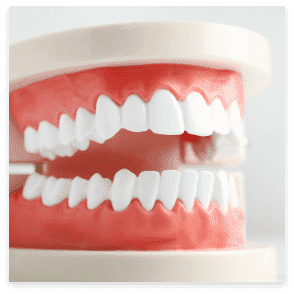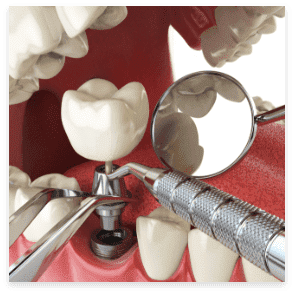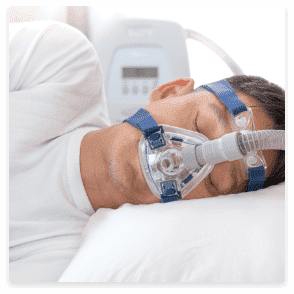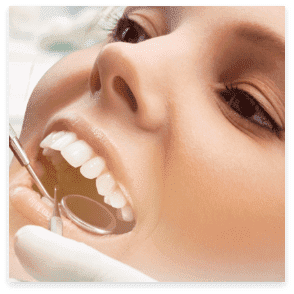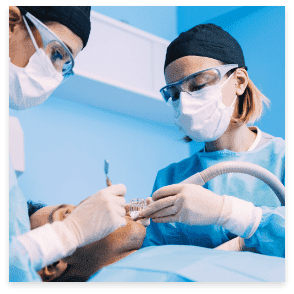What To Do If You Get An Abscessed Tooth
If you have ever experienced or are currently expieriencing a severely abscessed tooth, you will know the tooth pain is off the charts. However, the early stage symptoms of a tooth developing an abscess are not always noticable. In this post, we will take a look at the different stages of an abscessed tooth, how they happen and what to do about them.
What Is An Abscessed Tooth?
If left untreated, a bacterial tooth infection will trigger a natural defense mechanism in the mouth to fight off the infection known as an abscess. This defense will cause an accumulation of pus in the tooth and is designed to block and prevent the infestion from spreading. Sounds like a good thing, right? Unfortunately, the abscessed tooth puts the teeth and gums in further jeopardy by eroding the enamel and jawbone. An abcess can often times cause irreversible damage. As a result, the only solution in these severe cases is to extract the infected tooth.
How Does An Abscessed Tooth Form?
In most cases, an abscessed tooth devlops as a result of tooth decay. However, in some cases, an infection can occur as the result of an injury causing a chipped, cracked or broken tooth. When this happens, bacteria can sometimes set in. The body’s natural response to a bacterial prescence is to create a defense shield in the form of pus to block the spread of the bacteria. Consequently, if left untreated, this pus shield will start to quickly break down the teeth and gums.
What Are The Stages Of An Abscessed Tooth?
An abscessed tooth can develop quickly. However, they don’t happen overnight. There is actually a sequence of oral hygiene problems that have to occur in order for an abscess to develop fully.

Stage One, Enamel Decay
A dental abscess can’t occur without pus. Pus won’t be created unless there’s bacteria. Bacteria won’t breed unless there is an accumulation of plaque. When plaque accumulates on the tooth, it releases an acid that starts to break down the tooth’s protective enamel coating. Once this decay sets in, cavities will develop.
Stage Two, Decay Of Dentin
If the cavities are not treated in stage one, the bacteria and acid will continue to erode through the enamel into the sub layer of the tooth, known as the dentin, which is the final layer of the tooth before reaching the tooth pulp where nerves and blood vessels are located.
Stage Three, Tooth Pulp Infection
Once bacteria has tunneled its way through the dentin, it starts to infect the tooth pulp where it begins to do some real damage. Once the infection sets in here, the nerves of the tooth begin to die. Additionally, the roots begin to die as well. The body’s natural immune system will kick in at this point and begin to form a pus barrier around the infection. The barier surrounds the dying roots causing an abscessed tooth.
Stage Four, Tooth Loss
Once the pulp is infected, severe pain usually sets in indicating that an abscessed tooth is present and needs to be dealt with before it gets any worse. However, should the pain at this point be ignored and the infection continues to accellerate, the abscess can begin to dissolve the jaw bone, which may cause tooth loss. Furthermore, for those with a weak immune system, the infection can actually spread beyond the tooth and into other parts of the body. When this happens, the infection can become fatal.
How To Treat An Abscessed Tooth
Like with most oral health problems, if the development of an abscess is caught in its early stages, the issue can oftem be fixed. In a lot of cases, your Spring Hill, Florida dentist can usually perform an incision into the abscess to drain it. The area can then be cleaned with a saline solution and left to heal.
That said, if an abscess happens to penetrate the tooth pulp, your dentist may decide to perform a root canal to clear the infection. A dental crown is then used to protect the remainder of the healthy tooth.
Lastly, if the infection has spread too much, your dentist may recommend a tooth extraction in order to prevent further damage and infection.
With each of these treatment options, a series of antibiotics may also be prescribed to further halt the development of bacteria.
Call The Dental And Denture Care Center Today To Check For The Presence Of An Abscessed Tooth
If you think you have a problem tooth that might be infected, call The Dental and Denture Care Center today at (352) 848-1050 to make an appointment or contact us on the web here. We are here to answer your questions and help you regain the most beautiful smile of your life.


